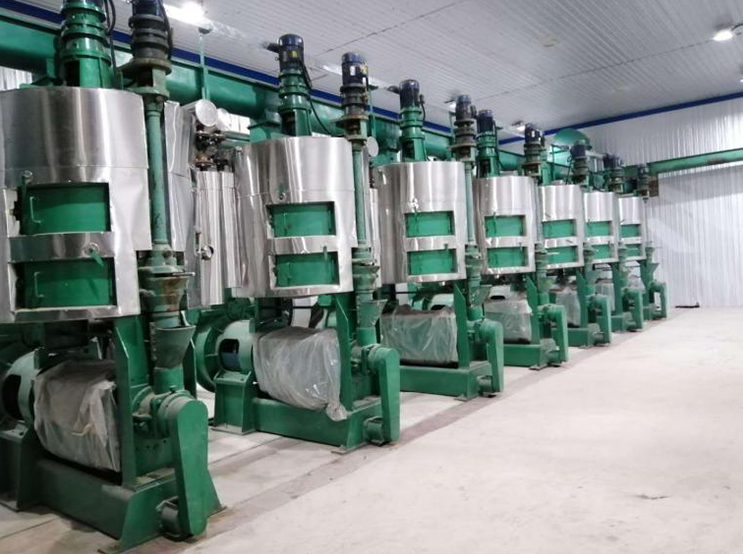Oct . 20, 2024 15:15 Back to list
china food oil refined unit
Understanding the Refined Edible Oil Industry in China
The refined edible oil industry in China plays a crucial role in the country's economy and food supply chain. As one of the world's largest consumers and producers of edible oil, China's refined oil sector has seen significant growth and transformation over the past few decades. This article delves into the intricacies of the refined edible oil production process, market dynamics, and the future outlook of this vital industry.
The Production Process
Refined edible oil is produced through a series of stages, starting from the extraction of oil from oilseeds and culminating in the purification of the extracted oil. The main oilseeds processed in China include soybean, rapeseed, peanut, and sunflower seed. The extraction process typically involves mechanical pressing or solvent extraction methods.
Once the crude oil is obtained, it undergoes refining, which consists of several key steps degumming, neutralization, bleaching, and deodorization. Each step is essential in removing impurities, unwanted colors, and odors, ensuring that the final product meets both food safety standards and consumer expectations. The level of refining can vary based on the intended use of the oil, with options ranging from minimally refined (for specific culinary applications) to highly refined oils designed for long shelf life and high stability under cooking conditions.
Market Dynamics
The Chinese refined edible oil market is characterized by intense competition and rapid growth. Several factors contribute to the increasing demand for refined oils, including a rising population, urbanization, and changing dietary habits that favor cooking oils. Furthermore, as consumers become more health-conscious, there is a growing trend towards oils that are perceived to be healthier, such as those high in mono- and polyunsaturated fats.
Major players in the Chinese edible oil market include large state-owned enterprises as well as numerous private companies. These entities compete not only on price but also on quality, branding, and distribution networks. For instance, brands that emphasize non-GMO or organic sourcing have caught the attention of health-conscious consumers, driving innovation in product offerings.
The importation of edible oils is another significant aspect of the market. China imports a substantial quantity of soybean and palm oil to meet its domestic demand. Changes in international trade policies, tariffs, and supply chain logistics can dramatically affect domestic oil prices and availability, making the market highly sensitive to global economic dynamics.
china food oil refined unit

Challenges and Developments
Despite its robust growth, the refined edible oil industry in China faces several challenges. Issues such as environmental sustainability, food safety, and compliance with regulatory standards are increasingly important. Environmental concerns have prompted the government to enforce stricter regulations regarding waste management and emissions from oil processing plants.
Additionally, in recent years, there has been heightened scrutiny over food safety, especially in light of several high-profile incidents involving adulterated cooking oils. The Chinese government has responded by strengthening food safety regulations, which has led companies to invest in more sophisticated processing technologies to ensure compliance.
In terms of technological advancements, there is an ongoing trend towards automation and digitalization in the refining process. Implementing advanced technologies not only enhances efficiency and product quality but also minimizes environmental impact by optimizing resource use and reducing waste.
Future Outlook
Looking ahead, the refined edible oil industry in China is poised for continued growth. As consumer preferences evolve, there will be increased demand for diverse oil products, including specialty oils catering to specific health benefits. The trend towards plant-based diets is also likely to spur innovation and investment in alternative oil sources.
Furthermore, as the global economy becomes more interconnected, the Chinese refined oil market will have to navigate external factors such as trade agreements, international demand fluctuations, and geopolitical tensions. Adaptability and responsiveness to these changes will be key for domestic producers to maintain their competitive edge.
In conclusion, China's refined edible oil industry is a dynamic sector that is constantly evolving. With a focus on innovation, quality, and sustainability, it is well-positioned to meet the demands of a growing population while addressing the challenges of modern food production. As the world looks toward healthier and sustainably produced food options, the future of refined edible oils in China is bright, promising a vital contribution to both nutrition and the economy.
-
HP 120 Cold Oil Press-Hebei Huipin Machinery|Oil Extraction, Cold Press Machine
NewsAug.17,2025
-
HP 120 Cold Oil Press-Hebei Huipin Machinery|Oil Extraction, Cold Pressing
NewsAug.17,2025
-
High-Efficiency Black Seed Oil Expeller & Cold Press Machine
NewsAug.17,2025
-
HP 120 Model Cold Oil Press - Hebei Huipin Machinery | Oil Extraction Machine, Flaxseed Oil Press
NewsAug.16,2025
-
HP 120 Cold Oil Press-Hebei Huipin|Efficient Extraction&Multi-Use
NewsAug.16,2025
-
HP 120 Cold Oil Press-Hebei Huipin|High-Efficiency Oil Extraction&Cold Press Technology
NewsAug.16,2025
